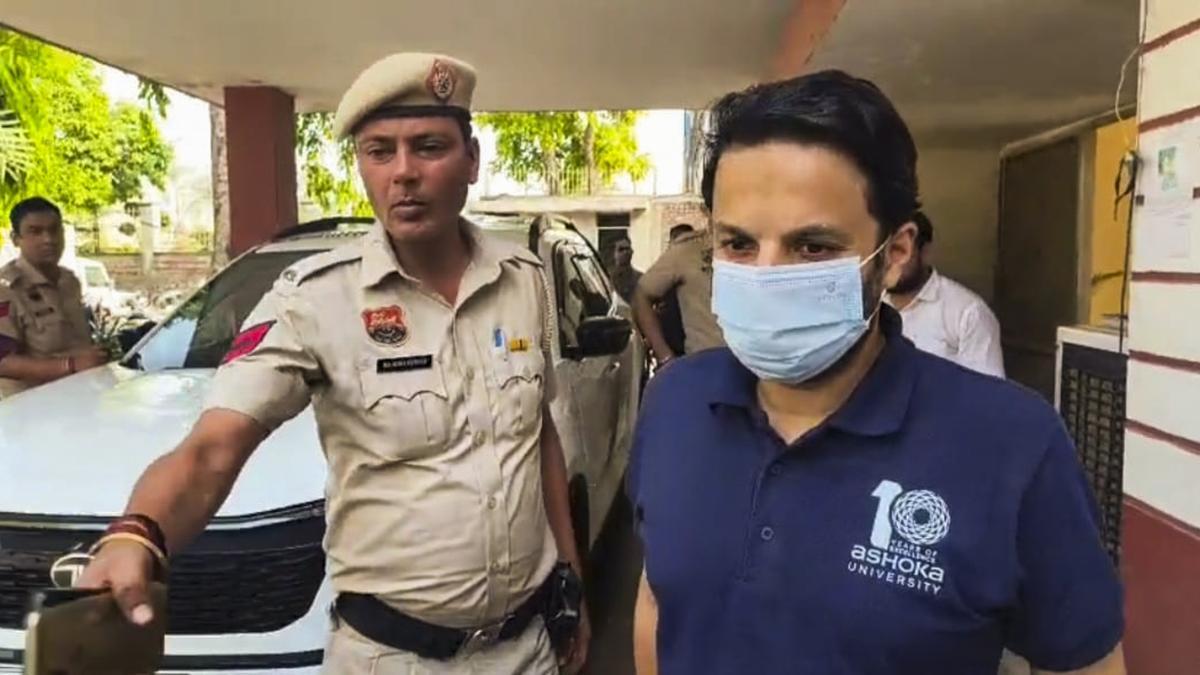In a development that has stirred debate across academic and civil society circles, a group of former senior civil servants has come out strongly in defense of an Ashoka University professor who is currently facing criminal charges. The charges, which many within the academic and bureaucratic community have deemed questionable, have raised serious concerns about freedom of expression, academic autonomy, and the potential misuse of legal processes to silence dissent.
The professor in question, a respected scholar in political science and public policy, is known for his critical analysis of governance and democratic institutions. His academic contributions, widely cited and discussed in both scholarly and public discourse, have often engaged with themes that challenge dominant political narratives. It is this critical approach, many believe, that has made him a target for politically motivated legal actions.
A collective of retired civil servants, who served in senior positions across various arms of government, issued a detailed public statement condemning the charges as “outrageous and absurd.” They emphasized that the allegations appear to be not only unfounded but also dangerously close to being punitive reprisals for the professor’s academic work and public commentary.
In their joint letter, the group highlighted that the charges lacked substantive evidence and failed to establish any form of criminal intent or wrongdoing. They argued that such legal actions reflect a disturbing trend where scholars, journalists, and public intellectuals are increasingly being subjected to harassment through legal mechanisms. The civil servants expressed their deep concern about the implications this case could have on academic freedom and democratic discourse in India.
The letter underscored the professor’s longstanding contributions to public policy research and his role in nurturing critical thinking among students. It warned that targeting intellectuals who encourage debate and dissent poses a grave threat to India’s democratic values. “In a democratic society, disagreement is not a crime, and universities must remain spaces for critical inquiry and freedom of thought,” the statement read.
Observers have noted that this is not an isolated incident. Over recent years, there has been a noticeable pattern of targeting academics, writers, and researchers whose work challenges governmental narratives or draws attention to systemic issues. The chilling effect of such actions can have far-reaching consequences for institutions of higher learning and the future of democratic engagement.
Several human rights organizations and academic collectives have also expressed solidarity with the professor, echoing the call for the charges to be dropped immediately. Legal experts have questioned the very basis of the criminal complaint, suggesting that it fails the basic test of credibility and appears to be aimed at intimidation rather than justice.
This incident has reignited the broader debate over the shrinking space for dissent and the increasing weaponization of legal instruments against critical voices. As India stands at a critical juncture, the support extended by senior civil servants to an academic under siege is being hailed as a bold and necessary stand for constitutional values and intellectual freedom.
While the legal proceedings are still unfolding, the public backlash against what many see as a politically charged vendetta continues to grow. Students, academics, civil rights groups, and retired officials are uniting in their demand for the restoration of democratic norms, urging authorities to uphold the spirit of the Constitution and ensure that academic spaces remain free from coercion and fear.
The case is likely to become a defining moment in the ongoing conversation around academic freedom and civil liberties in contemporary India. The professor’s situation serves as a sobering reminder of the fragile balance between power and intellectual independence — and why that balance must be vigilantly protected.
Sponsored
FACTS Transcripts
Apply for a University document anywhere
https://www.factstranscript.com
Quick Transcripts for popular Universities, check your University name now and get started. We help you to get your transcript application online which is accepted for use of IRCC.
No DD, NO Paperwork. 100% Authentic, Reliable.
FACTS Transcripts Charges · Reviews · Assam Universities · Home · Know your University










